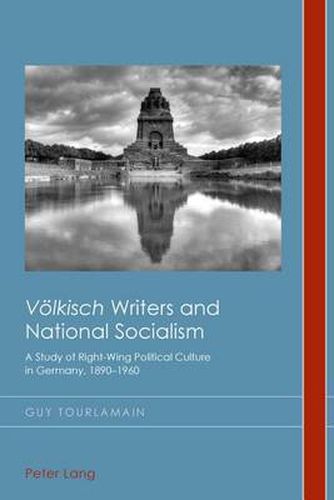Readings Newsletter
Become a Readings Member to make your shopping experience even easier.
Sign in or sign up for free!
You’re not far away from qualifying for FREE standard shipping within Australia
You’ve qualified for FREE standard shipping within Australia
The cart is loading…






This title is printed to order. This book may have been self-published. If so, we cannot guarantee the quality of the content. In the main most books will have gone through the editing process however some may not. We therefore suggest that you be aware of this before ordering this book. If in doubt check either the author or publisher’s details as we are unable to accept any returns unless they are faulty. Please contact us if you have any questions.
This book provides a view of literary life under the Nazis, highlighting the ambiguities, rivalries and conflicts that determined the cultural climate of that period and beyond. Focusing on a group of writers - in particular, Hans Grimm, Erwin Guido Kolbenheyer, Wilhelm Schafer, Emil Strauss, Boerries Freiherr von Munchhausen and Rudolf Binding - it examines the continuities in voelkisch-nationalist thought in Germany from c. 1890 into the post-war period and the ways in which voelkisch-nationalists identified themselves in opposition to four successive German regimes: the Kaiserreich, the Weimar Republic, the Third Reich and the Federal Republic. Although their work predated Hitler’s National Socialist movement, their contribution to preparing the cultural climate for the rise of Nazism ensured them continued prominence in the Third Reich. Those who survived into the post-war era continued to represent the voelkisch-nationalist worldview in the West German public sphere, opposing both the Soviet and liberal-democratic models for Germany’s future. While not uncontroversial, they were able to achieve significant publishing success, suggesting that a demand existed for their works among the German public, stimulating debate about the nature of the recent past and its effect on Germany’s cultural and political identity and position in the world.
$9.00 standard shipping within Australia
FREE standard shipping within Australia for orders over $100.00
Express & International shipping calculated at checkout
This title is printed to order. This book may have been self-published. If so, we cannot guarantee the quality of the content. In the main most books will have gone through the editing process however some may not. We therefore suggest that you be aware of this before ordering this book. If in doubt check either the author or publisher’s details as we are unable to accept any returns unless they are faulty. Please contact us if you have any questions.
This book provides a view of literary life under the Nazis, highlighting the ambiguities, rivalries and conflicts that determined the cultural climate of that period and beyond. Focusing on a group of writers - in particular, Hans Grimm, Erwin Guido Kolbenheyer, Wilhelm Schafer, Emil Strauss, Boerries Freiherr von Munchhausen and Rudolf Binding - it examines the continuities in voelkisch-nationalist thought in Germany from c. 1890 into the post-war period and the ways in which voelkisch-nationalists identified themselves in opposition to four successive German regimes: the Kaiserreich, the Weimar Republic, the Third Reich and the Federal Republic. Although their work predated Hitler’s National Socialist movement, their contribution to preparing the cultural climate for the rise of Nazism ensured them continued prominence in the Third Reich. Those who survived into the post-war era continued to represent the voelkisch-nationalist worldview in the West German public sphere, opposing both the Soviet and liberal-democratic models for Germany’s future. While not uncontroversial, they were able to achieve significant publishing success, suggesting that a demand existed for their works among the German public, stimulating debate about the nature of the recent past and its effect on Germany’s cultural and political identity and position in the world.